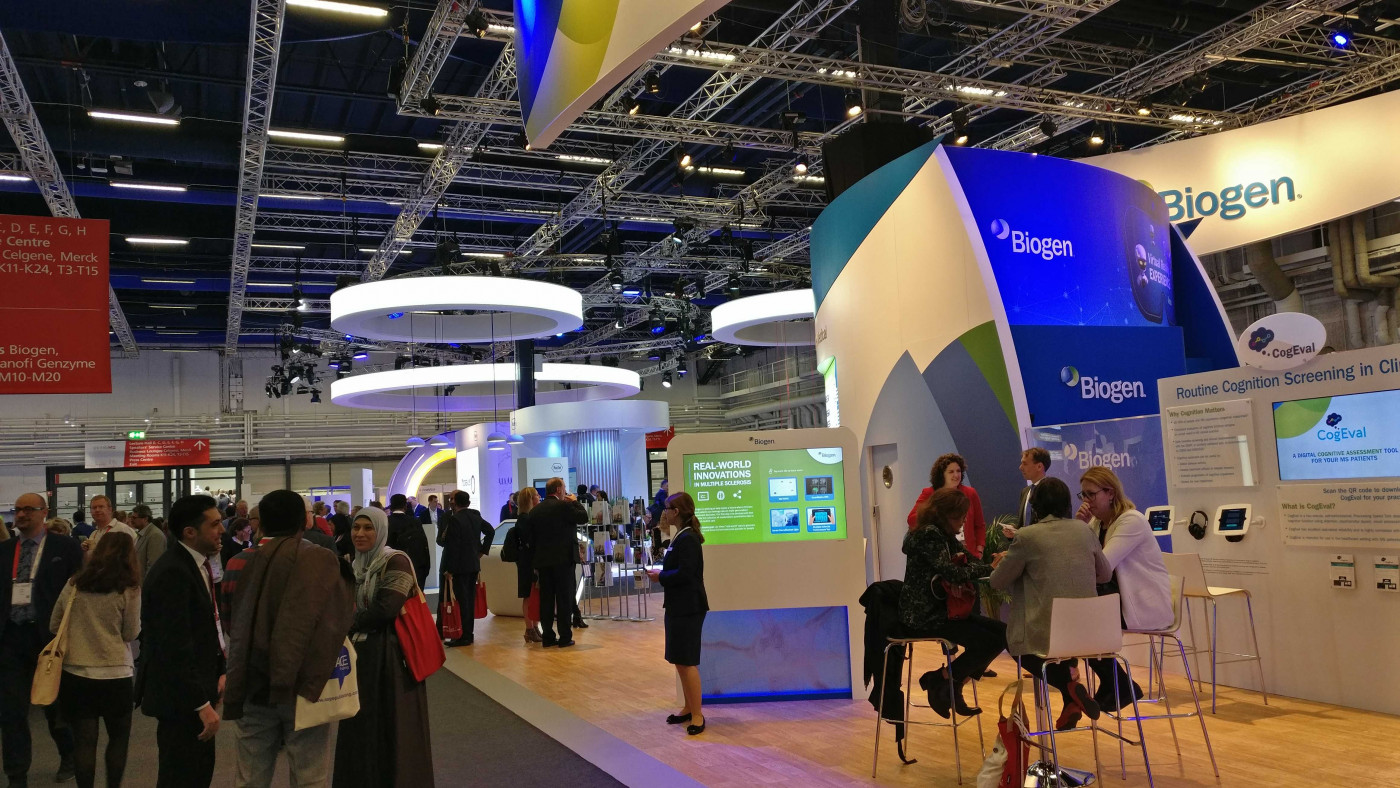#ECTRIMS2019 – 10-year Data Confirm Long-term Benefits of Biogen’s Tecfidera for RRMS
Written by |

#ECTRIMS2019
New 10-year data from the Phase 3 ENDORSE trial confirms the long-term benefits of Biogen’s Tecfidera for patients with relapsing-remitting multiple sclerosis (RRMS), the most common form of this disease.
Real-world data from another study also showed Tecfidera to be superior to several other disease-modifying therapies for relapsing MS, namely Copaxone (glatiramer acetate), Aubagio (teriflunomide), and interferon beta.
These results are being presented at the 35th congress of the European Committee for Treatment and Research in Multiple Sclerosis (ECTRIMS), taking in Stockholm through Friday.
Tecfidera (dimethyl fumarate) is an oral disease-modifying therapy used as a first-line treatment for RRMS. Data from two earlier Phase 3 studies, DEFINE (NCT00420212) and CONFIRM (NCT00451451), showed Tecfidera’s ability to significantly reduce the relapse rates and disease progression associated with RRMS compared to placebo.
The ongoing Phase 3 ENDORSE trial (NCT00835770) is an extension study evaluating the therapy’s long-term efficacy and safety. People who participated in either DEFINE or CONFIRM were enrolled and randomized to Tecfidera at 240 mg given twice a day.
Out of 618 RRMS patients followed for 10 years, 192 of them (mean age, 41.6; 68% women) were on continuous Tecfidera twice daily treatment throughout that time. Results from this group revealed that long-term Tecfidera use was associated with a low number of relapses and a halt in greater disability.
Specifically, 51% of these patients remained relapse-free, and 64% had no signs of confirmed disability progression over the 10-year follow-up period.
Importantly, the majority of patients (79%) retained the ability to walk without significant impairments.
Tecfidera’s safety profile in this study was consistent with previous trials, without any increased risk of serious infections.
These results will be presented in detail on Friday, on Sept. 13, in the poster “Overall safety and efficacy through 10 years of treatment with delayed-release dimethyl fumarate in patients with relapsing-remitting multiple sclerosis.”
“Biogen’s new data underscore Tecfidera’s role as a meaningful long-term therapy option for relapsing MS, with many patients in the study experiencing no relapses or progression in their disability over a 10-year period,” Alfred Sandrock Jr., MD, PhD, executive vice president and chief medical officer at Biogen, said in a press release.
Another poster being presented on Friday compares Tecfidera with other disease-modifying RRMS therapies. Researchers here, based on a meta-analysis of 18 databases from large and real-world studies, show that Tecfidera is better at reducing the annualized relapse rate and at delaying time to first relapse in RRMS patients compared to Teva Pharmaceutical’s Copaxone, Sanofi Genzyme’s Aubagio, or interferon beta therapies.
Tecfidera’s efficacy in both these measures was similar to that of Novartis’ Gilenya (fingolimod). However, Biogen’s Tysabri (natalizumab), and Sanofi Genzyme’s Lemtrada (alemtuzumab) were better at reducing the annualized relapse rate than Tecfidera.
The poster is titled “Comparative effectiveness of delayed-release dimethyl fumarate vs. other disease-modifying therapies in patients with multiple sclerosis: a network meta-analysis of real-world evidence.”
Finally, updated results from the Phase 3 EVOLVE-MS-1 trial (NCT02634307) are detailed in an electronic poster, showing that Vumerity (diroximel fumarate), another potential relapsing MS therapy developed by Biogen, is well-tolerated with low rates of treatment discontinuation due to adverse effects.
Vumerity is a prodrug, meaning that once inside the body, it is metabolized into an active agent, in this case monomethyl fumarate (MMF). MMF is similar to the active agent in Tecfidera.
This oral therapy, being developed by Alkermes in collaboration with Biogen, is expected to help prevent the degeneration of myelin (the nerve cells’ protective sheath) in MS patients, without inducing a systemic inhibition of the immune system and with fewer gastrointestinal side effects than Tecfidera.
Vumerity’s safety and effectiveness is being tested in two Phase 3 studies in patients with RRMS — the EVOLVE-MS-1, and the EVOLVE-MS-2 trial (NCT03093324).
EVOLVE-MS-1 is an ongoing, two-year study evaluating Vumerity given twice daily, and has enrolled about 1,000 RRMS patients.
New interim data from 888 patients treated for approximately 18 months confirmed a previous analysis, and showed that Vumerity is in general safe and well-tolerated, with the majority of side effects being mild to moderate.
The rate of treatment discontinuation due to adverse effects was low (7.1%), with less than 1% stopping treatment due to gastrointestinal difficulties.
Exploratory effectiveness data show that Vumerity reduced the annualized relapse rate by 79.4%, and was associated with a 64.3% decrease in the mean number of lesions after two years of treatment.
These findings are in agreement with topline data from the EVOLVE-MS-2 trial, where Vumerity was associated with fewer and less severe gastrointestinal side effects than Tecfidera.
The poster is titled “Diroximel fumarate (DRF) in patients with relapsing-remitting multiple sclerosis: interim safety and efficacy results from the Phase 3 EVOLVE-MS-1 study.”
“We are proud of the strong legacy Tecfidera has achieved over the years, and are excited to continue building our franchise of fumarate products with the potential addition of diroximel fumarate,” Sandrock said.
“As a next-generation fumarate, diroximel fumarate offers a differentiated gastrointestinal tolerability profile and, if approved, will be a strong choice for physicians and patients with relapsing MS to consider.”
An application for Vumerity’s approval as a relapsing MS therapy was accepted by the U.S. Food and Drug Administration (FDA) in February, and a decision is expected by year’s end.


